Application Forms
Application forms to simplify hiring and screen candidates effectively!
-
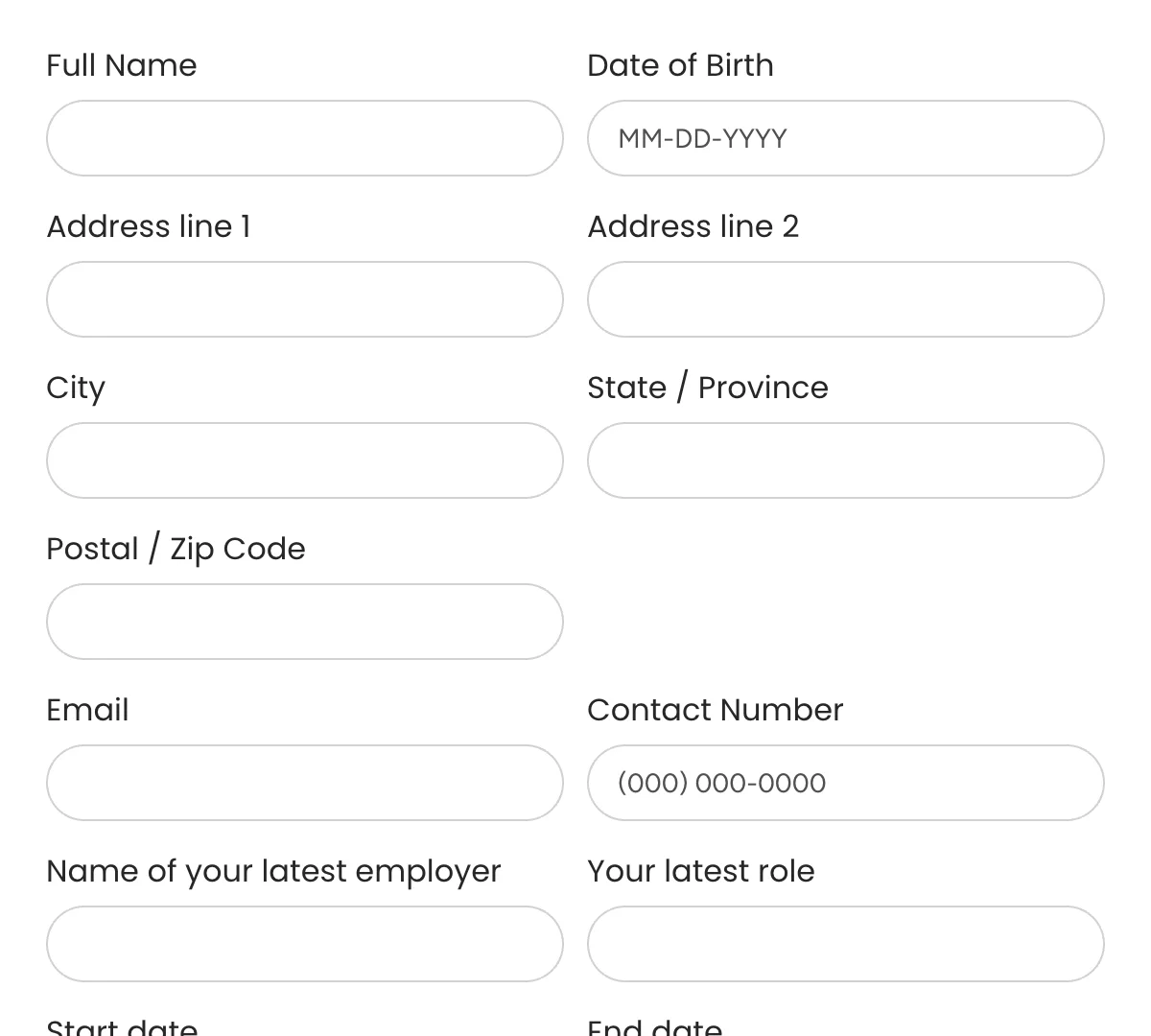
Simple Job Application Form
Clean, minimal job application form for easy hiring and applicant tracking
Get code -
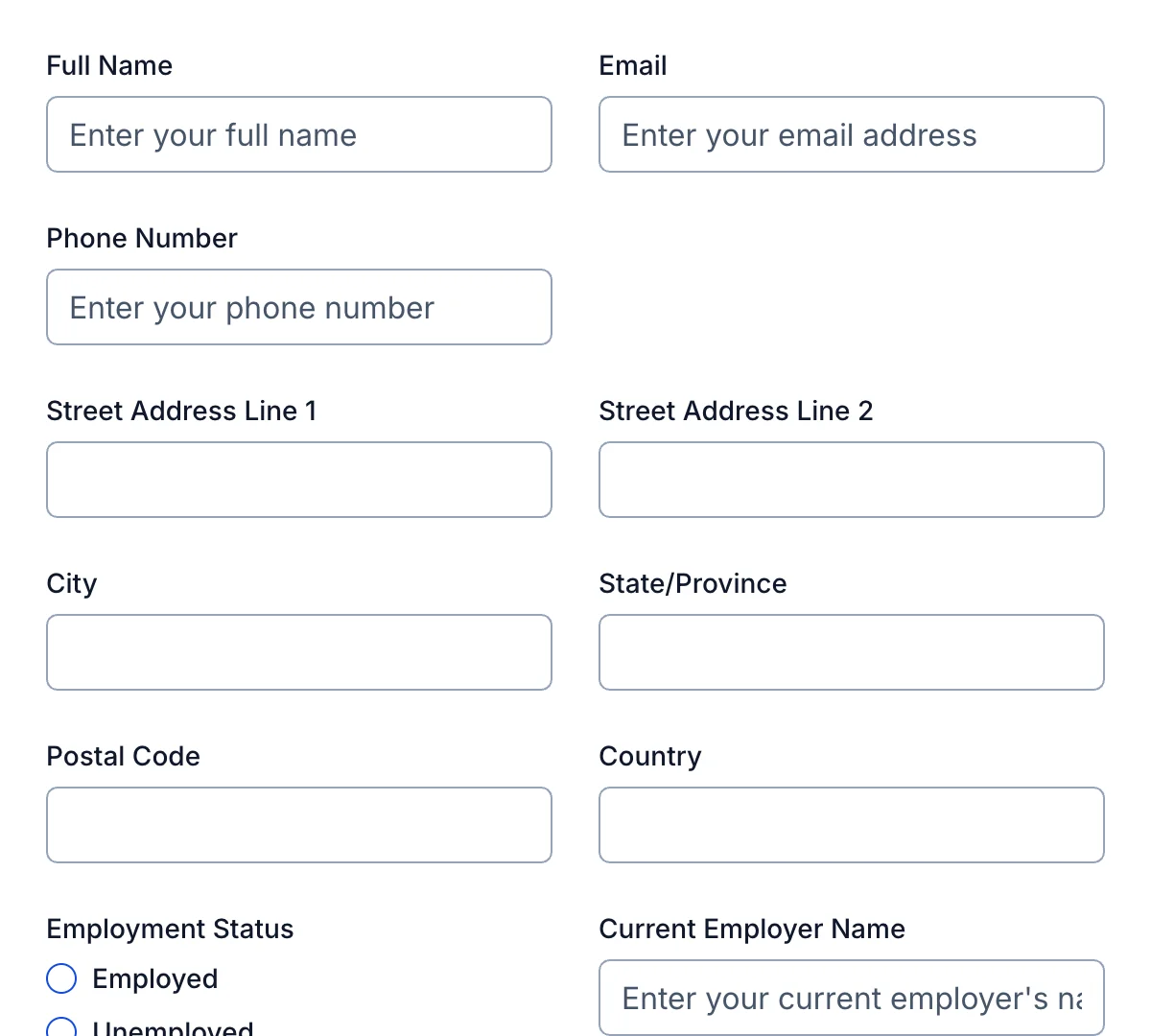
Rental Application Form
Clean, minimal rental application form for hassle-free tenant screening and management
Get code -
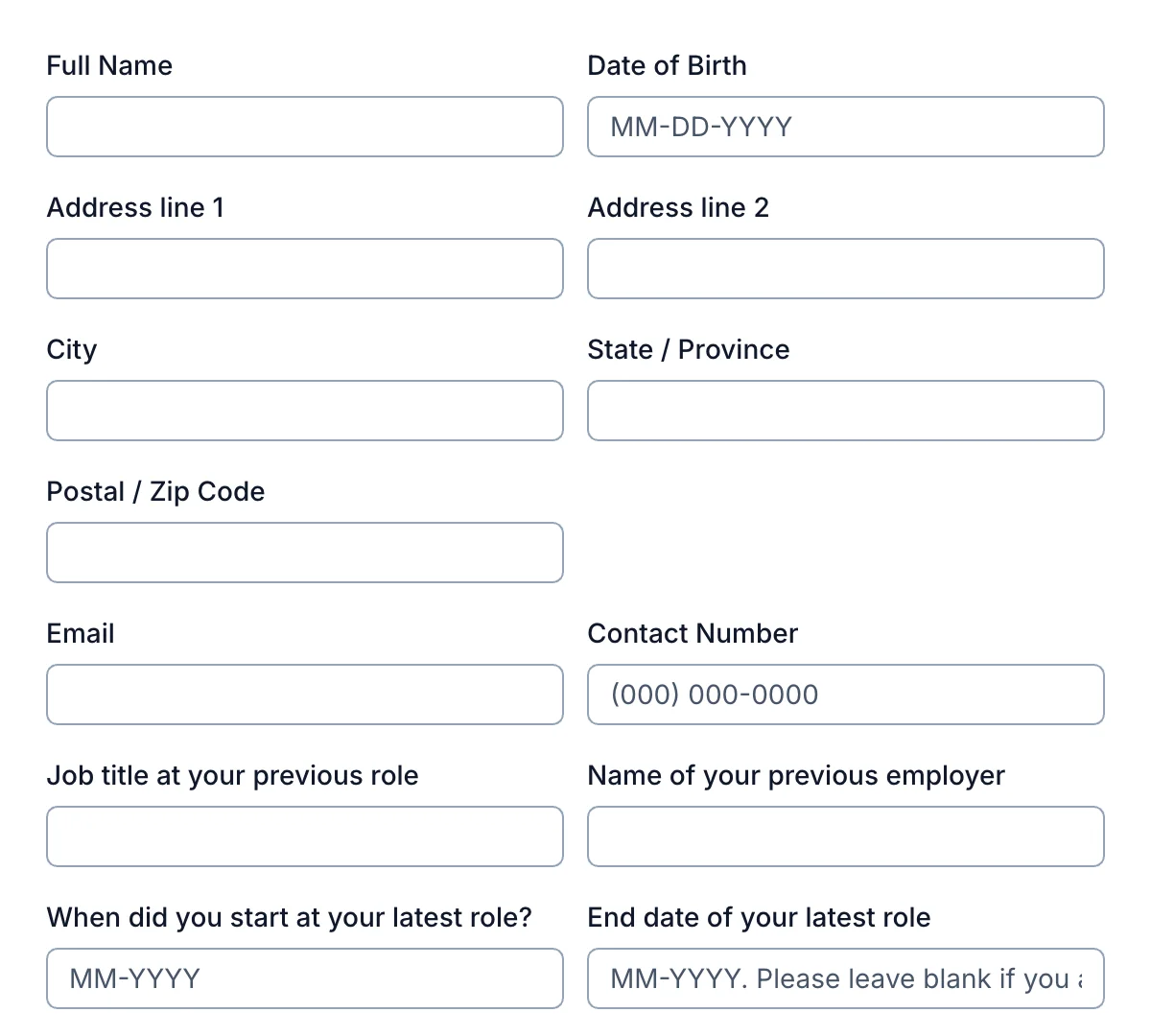
Job Application Form
Minimal and intuitive job application form to attract top talent and streamline applicant submissions.
Get code -
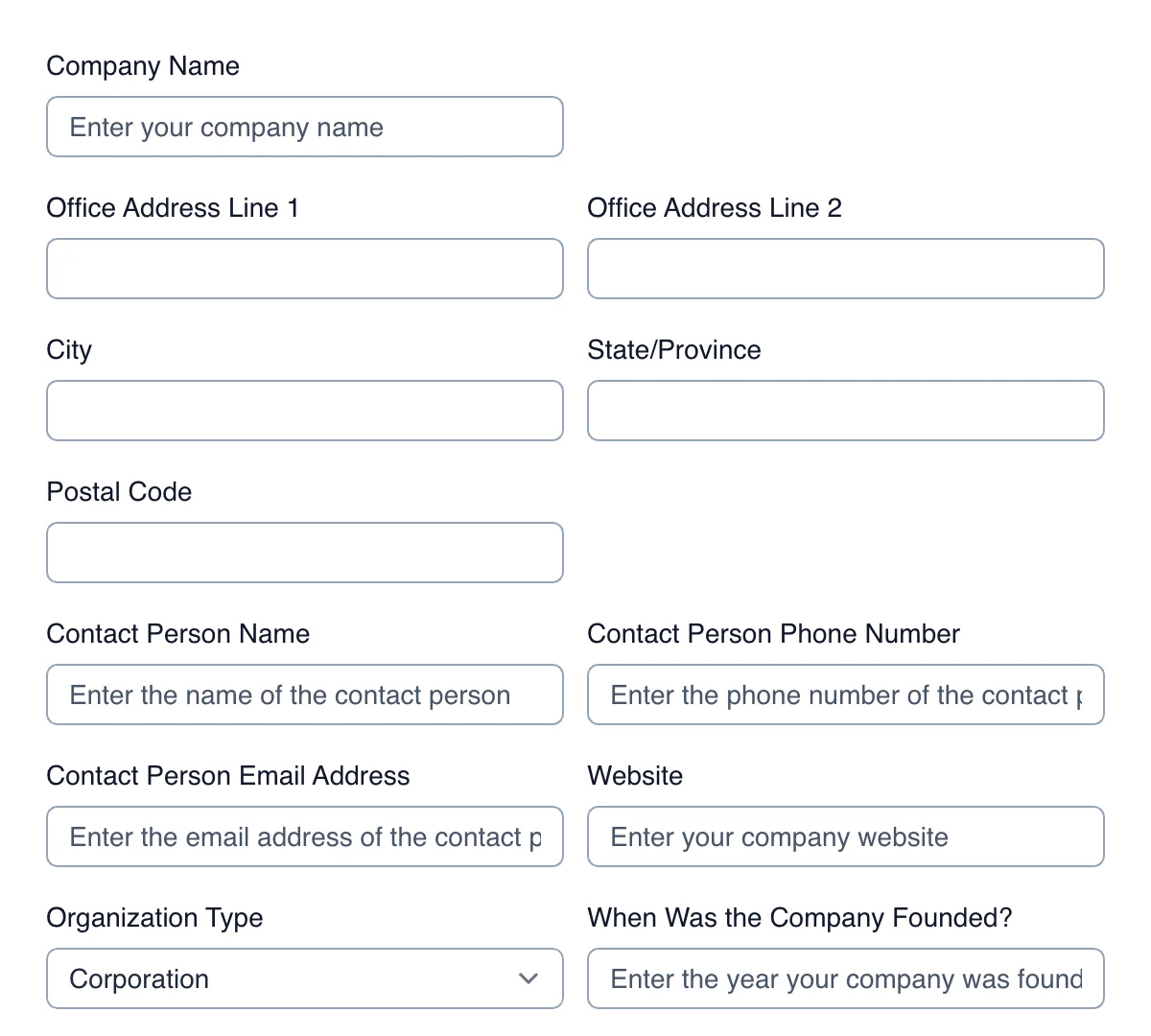
Vendor Application Form
Clean, efficient vendor application form for seamless vendor registration and management.
Get code -
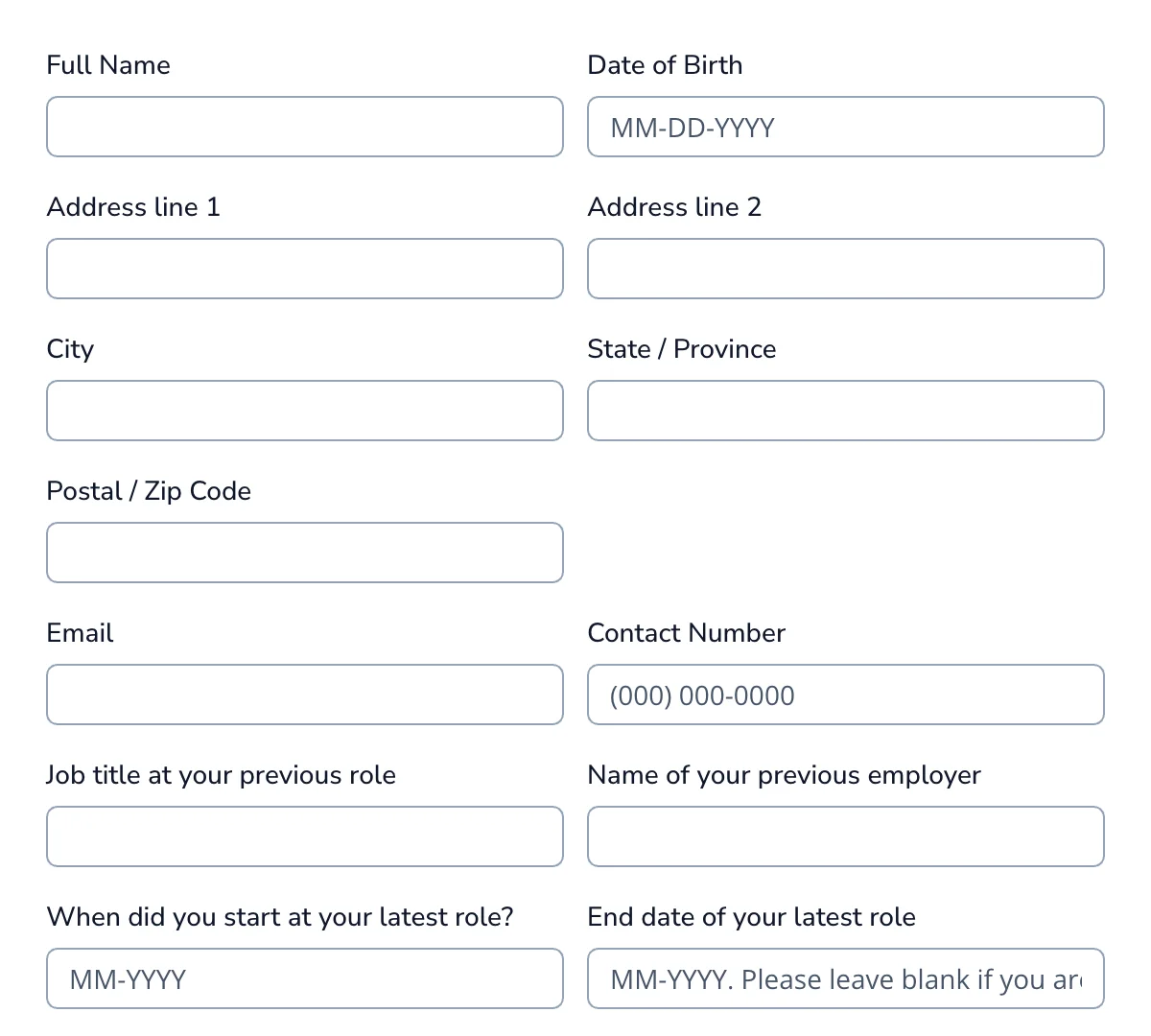
Employment Application Form
Sleek, user-friendly employment application form designed to simplify hiring and organize applicant details effectively.
Get code -
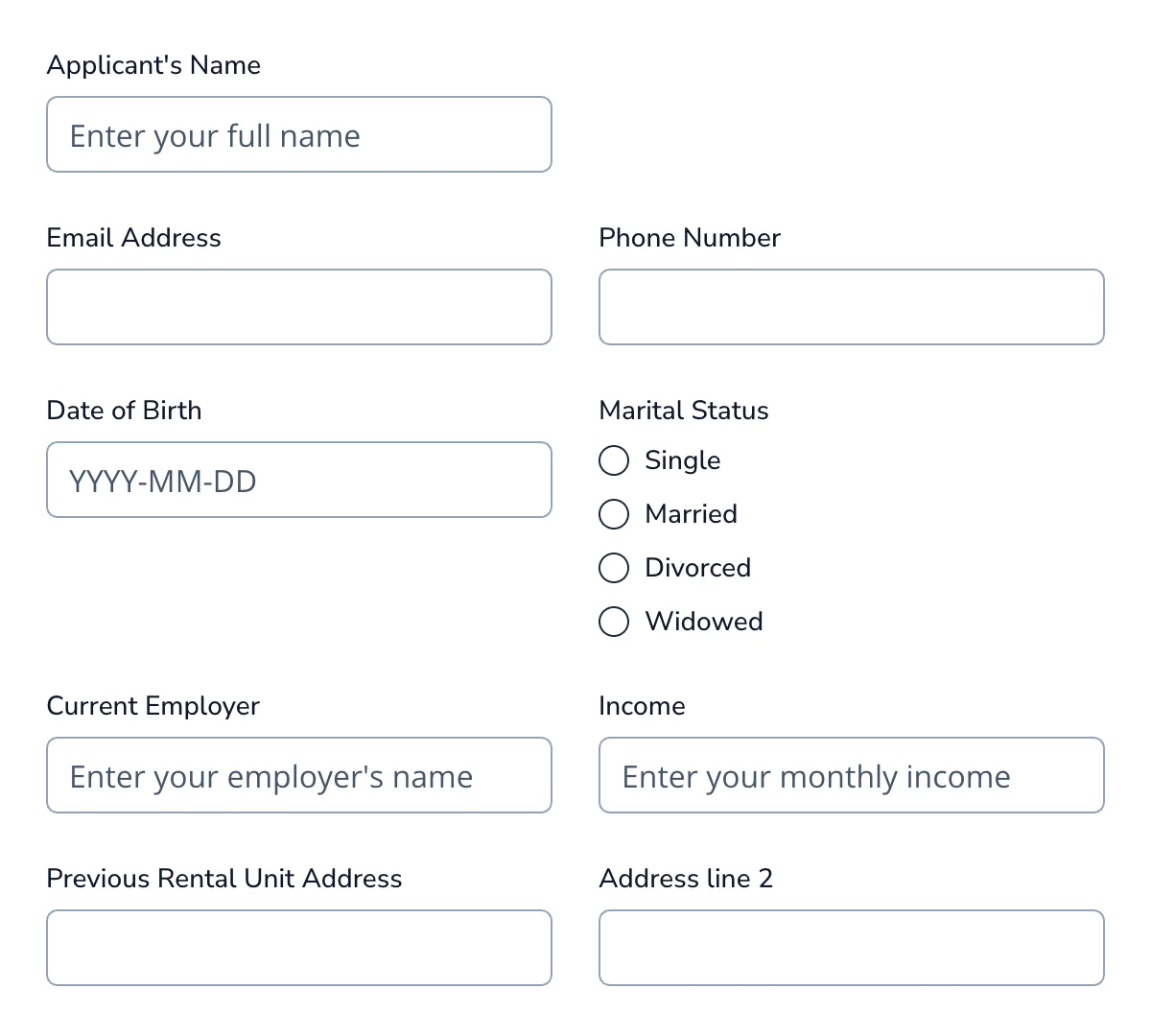
Tenant Application Form
Minimal, user-friendly tenant application form for quick and efficient tenant selection.
Get code
What is an Application Form?
Application forms are a vital part of gathering and organizing information in various professional and personal contexts. Whether you’re applying for a job, signing up for a volunteer opportunity, or securing a rental property, application forms make the process streamlined and straightforward. With the increasing availability of online forms, creating, submitting, and processing these forms has become more efficient and accessible.
In this article, we will explore what an application form is, when you might need one, the popular components found in most application forms, and how to create the best forms for your specific needs. Along the way, we’ll dive into practical tips for using application form templates to simplify the process.
Understanding an Application Form
An application form is a structured document that collects specific information from individuals for a particular purpose. It can be digital or physical and is widely used in various fields like employment, education, housing, and more. Application forms are essential tools for organizations, allowing them to gather organized data that helps make informed decisions.
With the rise of online forms, application forms have become even more accessible. These forms provide an easy way for applicants to submit their information from anywhere, at any time. The forms typically request a wide range of details, from personal information to educational backgrounds and financial data.
Whether you’re applying for a loan, a job, or a membership, application forms ensure that the organization gets all the relevant details in a standardized format. For example, a job application form will ask for information like work experience and skills, while a rental application form will focus on financial status and housing history.
When Do You Need an Application Form?
Application forms come into play in various situations. Below are some of the most common scenarios where you might need one:
- Job Applications: A job application form is essential for employers to gather standardized information from applicants. These forms typically include sections on work history, education, and skills.
- Housing and Rental Applications: A rental application form or housing application form helps landlords assess potential tenants. These forms may request financial details, such as proof of income and a credit check.
- Membership and Volunteer Opportunities: For individuals looking to join an organization, a membership application form or volunteer application form is typically required. These forms often ask for personal and contact details as well as availability.
- Loan Applications: Whether you’re applying for a personal or business loan, a loan application form collects important financial data such as your credit history, income, and the purpose of the loan.
- Scholarship Applications: For students applying for educational scholarships, a scholarship application form gathers details about academic achievements, extracurricular activities, and financial needs.
Popular Components of an Application Form
Most application forms share common fields, regardless of their specific purpose. Here are some popular components you’ll find in a typical application form:
Personal Information
The most basic component of any application form is the personal information section.
This typically includes:
- Full name
- Date of birth
- Address
- Contact details like phone number and email
In many cases, the form will also request a social security number for identification or verification purposes.
Eligibility Information
For certain types of applications, such as employment or scholarships, eligibility information is crucial. A common question is whether the applicant is a U.S. citizen or holds a valid visa to work or study in the United States.
Financial Information
For forms like loan application forms or rental application forms, financial data is required to assess the applicant’s ability to meet financial obligations. This section may ask for:
- Proof of income (such as pay stubs or bank statements)
- Credit score
- Employment status
- Expenses and liabilities
Education and Employment History
For job application forms and scholarship application forms, a detailed history of the applicant’s education and work experience is usually requested. This section helps the organization assess the qualifications of the candidate.
Online Accounts and Social Media
Some forms may ask for links to the applicant’s online account or social media profiles, especially for job applications or membership forms that involve public-facing roles.
How to Best Create an Application Form
One of the easiest ways to create a professional application form is by using an application form template. Templates provide a ready-made structure that can be customized to suit your needs. They offer an easy way to create forms that are both functional and aesthetically pleasing, without requiring technical expertise.
An application form template typically includes predefined fields like name, address, contact information, and other essential details, saving you the hassle of starting from scratch. For instance, if you’re building a volunteer application form or membership application form, templates can save time by including pre-built sections for personal information, experience, and contact details.
Beyond saving time, using an application form template ensures that your form is consistent in design and structure. This consistency is crucial for presenting a professional image, especially if you’re using the form for formal applications, such as a scholarship application form or rental application form.
Templates also offer flexibility. You can modify an application form template to fit specific needs, such as adding custom fields for job qualifications or extra sections for financial details in a loan application form. There are many application form templates available on this page for different purposes, and they can be a valuable resource for creating polished, user-friendly forms.
For instance, if you’re building a volunteer application form or membership application form, an application form template can save time by including pre-built sections for personal information, experience, and contact details.
Popular types of application form templates include:
- Job application form template
- Scholarship application form template
- Rental application form template
- Volunteer application form template
Using these application form templates not only speeds up the creation process but also ensures that your form is professionally designed and user-friendly.
Customizing an Online Application Form
If you need more control over the design and functionality of your form, creating a custom online application form might be the best option. Modern form builders offer drag-and-drop functionality, making it easy to design forms that cater to your specific requirements.
Key features of custom online forms include:
- Conditional logic to show or hide questions based on previous answers
- Integration with email and other communication tools
- Mobile responsiveness for ease of use across devices
By customizing your online forms, you can tailor the form to fit the unique requirements of your organization, ensuring that it collects all the necessary information efficiently.
Application Form Best Practices
Creating an effective application form involves more than just adding fields. Here are some best practices to consider:
- Keep it Simple: While it may be tempting to collect as much information as possible, it’s best to limit the form to essential fields. The shorter and clearer your form, the more likely applicants are to complete it. For example, avoid asking for unnecessary details like social security number unless it’s absolutely required for legal or verification purposes.
- Mobile-Responsive Design: Many users will complete online forms on their phones or tablets. Ensure your form is mobile-responsive so that it’s easy to navigate and fill out on any device.
- Provide Clear Instructions: Not all users are familiar with complex forms. Be sure to provide clear instructions for each section, especially for more detailed forms like housing application forms or loan application forms.
- Security and Privacy Considerations: Given the sensitive information often collected (such as a social security number), ensure that your form complies with data protection laws and uses encryption to keep applicant data secure.
- Use Conditional Logic: Conditional logic helps make forms more user-friendly by only displaying relevant questions. For example, if an applicant is not a U.S. citizen, there’s no need to ask for citizenship details.
Conclusion
In conclusion, application forms are indispensable tools for collecting organized information, whether you’re looking to hire, approve loans, or award scholarships. By using an application form template or customizing your own online application form, you can create an effective, user-friendly form with ease. Remember to keep the form simple, mobile-responsive, and secure to ensure the best user experience.
Whether you’re building a job application form, a scholarship application form, or a rental application form, following these best practices will help you create a form that meets your needs while streamlining the submission process for applicants.